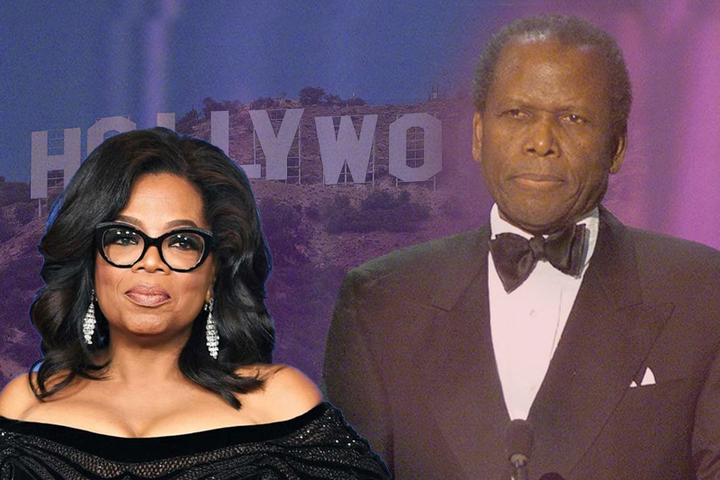
‘Sidney,’ produced by Oprah, depicts how Poitier redefined Hollywood
According to Oprah Winfrey and Reginald Hudlin, who spoke to Reuters in advance of the world premiere of Sidney, the late Sidney Poitier fundamentally altered the notion of what a black man might be on a stage of international proportions.
The life of Poitier is commemorated in a documentary that was produced by Winfrey and directed by Hudlin for Apple TV+. Winfrey stated in an interview that the documentary will “redefine what people thought a Black person could be and who Black people were in the world.” Hudlin will serve as the documentary’s executive producer.
When asked about the experience of watching Poitier on the big screen, she replied that for many people, “it was their first relationship with a Black person. White people were only familiar with black people in the context of their roles as maids and slaves.”
In the 1960s, it was not an easy task for a Black man to climb to the top of the entertainment industry in Hollywood. Poitier’s performances as a doctor, lawyer, and detective all broke new ground in their respective fields.
In the film “In the Heat of the Night” from 1967, Poitier plays the role of Virgil Tibbs, a detective who is interrogated by a white police chief in the southern United States. The chief asks him in a condescending manner what they call him in his hometown of Philadelphia. Poitier, sticking up for himself, is credited with giving the famous and forceful response, “They call me Mr. Tibbs.”
Keep Reading
“It was important for him as an artist, and as a Black artist, to only perform roles that were representative of what he believed was the integrity of himself and represented the integrity of his family,” Winfrey said. “It was important for him to only perform roles that were representative of what he believed was the integrity of himself and represented the integrity of his family.”
The movie, which is narrated by Poitier, presents a picture of a family guy who has a great deal of respect for himself. This is highlighted by the fact that his solid upbringing shaped him become the man he was.
“This movie will speak to an important part of you, no matter who you are, and it will give you the opportunity to raise yourself by following Sidney Poitier’s example,” stated Hudlin. “No matter who you are, this movie will appeal to an important part of you.”
The documentary features interviews with Denzel Washington, Halle Berry, Robert Redford, Lenny Kravitz, Barbra Streisand, Spike Lee, and Harry Belafonte, all of whom share recollections of how Poitier upped the standards of the film business. Other interviewees include Spike Lee and Harry Belafonte.
Winfrey says that watching Poitier become the first Black man to win the Oscar for best actor in 1964 for his performance in Lilies of the Field gave her hope for what was achievable in her own life. She was inspired by Poitier’s accomplishment. “If he could do that, I wonder what I’m capable of doing,” is a thought that comes to mind.




